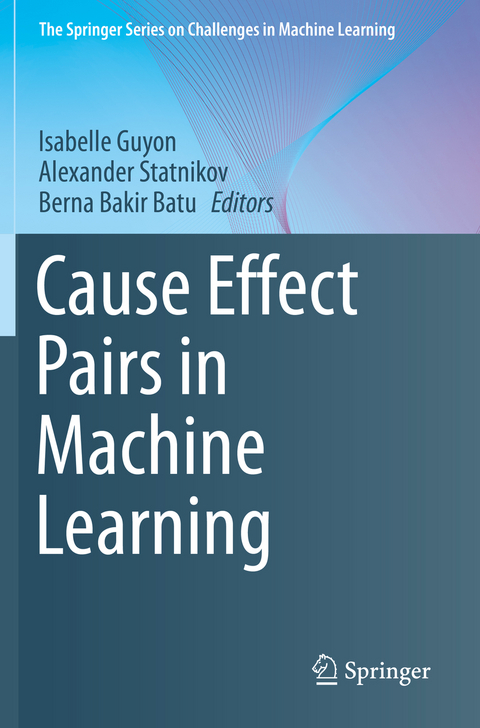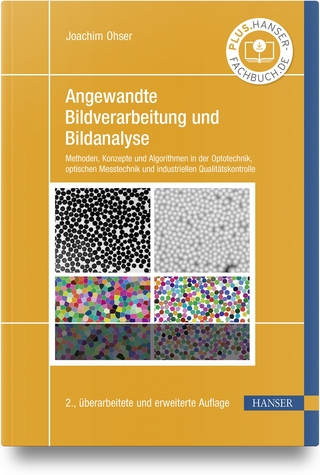
Cause Effect Pairs in Machine Learning
Springer International Publishing (Verlag)
978-3-030-21812-6 (ISBN)
This book provides both tutorial material on the state-of-the-art on cause-effect pairs and exposes the reader to more advanced material, with a collection of selected papers. Supplemental material includes videos, slides, and code which can be found on the workshop website.
Discovering causal relationships from observational data will become increasingly important in data science with the increasing amount of available data, as a means of detecting potential triggers in epidemiology, social sciences, economy, biology, medicine, and other sciences.
1. The cause-effect problem: motivation, ideas, and popular misconceptions.- 2. Evaluation methods of cause-effect pairs.- 3. Learning Bivariate Functional Causal Models.- 4. Discriminant Learning Machines.- 5. Cause-Effect Pairs in Time Series with a Focus on Econometrics.- 6. Beyond cause-effect pairs.- 7. Results of the Cause-Effect Pair Challenge.- 8. Non-linear Causal Inference using Gaussianity Measures.- 9. From Dependency to Causality: A Machine Learning Approach.- 10. Pattern-based Causal Feature Extraction.- 11. Training Gradient Boosting Machines using Curve-fitting and Information-theoretic Features for Causal Direction Detection.- 12. Conditional distribution variability measures for causality detection.- 13. Feature importance in causal inference for numerical and categorical variables.- 14. Markov Blanket Ranking using Kernel-based Conditional Dependence Measures.
"The book can be recommended for researchers in causal discovery with expertise in either statistics or machine learning. Although the chapters are written by different authors, readers will appreciate the book's coherent organization ... . " (Corrado Mencar, Computing Reviews, May 17, 2022)
“The book can be recommended for researchers in causal discovery with expertise in either statistics or machine learning. Although the chapters are written by different authors, readers will appreciate the book's coherent organization ... . ” (Corrado Mencar, Computing Reviews, May 17, 2022)
| Erscheinungsdatum | 06.11.2020 |
|---|---|
| Reihe/Serie | The Springer Series on Challenges in Machine Learning |
| Zusatzinfo | XVI, 372 p. 122 illus., 90 illus. in color. |
| Verlagsort | Cham |
| Sprache | englisch |
| Maße | 155 x 235 mm |
| Gewicht | 593 g |
| Themenwelt | Informatik ► Grafik / Design ► Digitale Bildverarbeitung |
| Informatik ► Theorie / Studium ► Künstliche Intelligenz / Robotik | |
| Schlagworte | Causal Direction • Causal graphs • causal inference • Causality • causality in machine learning • Causal Mechanisms • Causal Structure Learning • cause-effect pairs • large scale design |
| ISBN-10 | 3-030-21812-0 / 3030218120 |
| ISBN-13 | 978-3-030-21812-6 / 9783030218126 |
| Zustand | Neuware |
| Haben Sie eine Frage zum Produkt? |
aus dem Bereich


